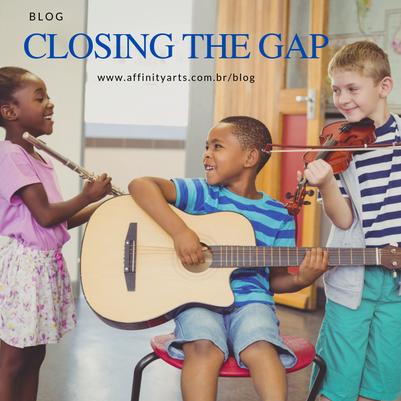 This last year it was reported one half of all school children in Brazil cannot read at all or very haltingly by third grade. It is amazing how exciting discoveries can be made and ignored in this world of ours! In the 1990's researchers at University of Southern California led a large and comprehensive research project in the brain development of children.. They first discovered that the brain has a neural language of its own which if the various vibrations are assigned numbers which correspond to musical notes sound very much like Mozart! They deduced from that that Mozart is developmental for small children. They went on to test the theory on college students, one group listening to Mozart 30 minutes before taking a calculus exam, and a control group listening to nothing. The group listening to Mozart scored far higher. However, unfortunately, the so-called Mozart Effect which received worldwide media coverage was short-lived in older students. After having participated in the research, all participants went back to normal once again. Therefore researchers wondered about the so-called Mozart Effect on preschoolers. It was here that children who listened to Mozart every day for a year came out in front of other children in spatial-reasoning and puzzle-making. That sparked further study. A four-part program was designed to be followed each day for a year while the control group did everything the first group did minus the music. The program consisted of 1) singing in a systematic manner following the work of Hungarian composer-researcher Kodaly 2) listening to Mozart 3) moving to music 4) making music with simple instruments. The results were phenomenal and furthermore continued with the music-receiving children far into elementary school. Trials were begun with children of four and five years, and then six and seven years. The very same results were replicated. Then just two years ago, experiments with high school students were performed. First, students, randomly chosen, had to correctly tap out rhythms of various types of music, the researchers listening with headphones to access the correctness. To a student, those who had studied music in their early lives and in elementary school, came out to be far superior readers than the others. Next pitch-change recognition was tested. The result was exactly the same and could be replicated. Music equaled good readers. Non-music children were struggling. In the USA, when the schools are low on money, the first program that is cut is music. That means that only economically-advantaged children whose parents can afford music lessons study instruments. The poor were and still are left behind. In Brazil, most people have a natural love for music, but again, only those who have economic advantages are given the gift of musical training. Due to a kind of natural talent among the Brazilian population, there exist many musicians, and many who struggled sacrificially to learn everything they know. What I am implying is that we could give many of these musicians pedagogical training which would enable them to teach in the schools and contribute to an indelible academic advantage for hundreds of thousands of youngsters in this country. Oh what a wonderful dream that would be! It would be not only giving people jobs, but jobs that mattered. The government wants to see more creches. Let's give these dear children more than just baby-sitting. Let's give them brain development through music, brain development that will last their whole life through. It is a sure-fire way to push them ahead, and what's more it's a lot of fun! I never saw a child who didn't like music. They love it! By: Mrs. Sue Frasunkiewicz
0 Comments
Your comment will be posted after it is approved.
Leave a Reply. |
Histórico / Historic
November 2019
Categorias/ Categories |


 RSS Feed
RSS Feed




